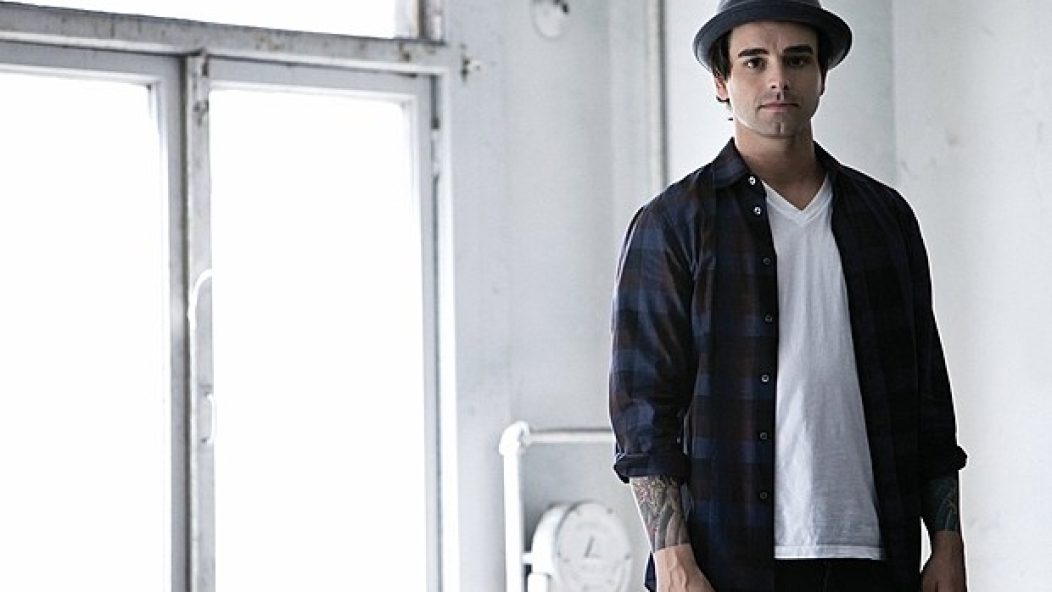
The Saddest Songs: Getting Through a Breakup with Dashboard Confessional
“And I knew / that you meant it / that you meant it.”
“Hands Down” – Dashboard Confessional
The first thing I did when she told me was nothing. I didn’t do anything. She walked out of my dorm room, and I watched her leave. I didn’t say a word. Instead, I sat on the edge of my bed, nonplussed, unsure what had just happened to me. I’d been dumped; I knew that much. She was leaving me for a guy about whom I knew nothing, except that he definitely wasn’t me. But was this what it was like? Was this really how it worked? She said a few words and, just like that, an entire relationship was dissolved? All it took was a few seconds to dismantle something that had felt so tangible, so vivid and real?
Well, yeah. The existence of this kind of relationship was predicated on its constituents’ belief in its existence. If one of the two people in the relationship said it didn’t exist, then it didn’t exist. But wouldn’t it follow, then, that if one of the two people in the relationship didn’t believe it didn’t exist, it did exist? Yes, I thought to myself. Yes, that sounded right.
So the second thing I did was run, full-speed, out of my dorm.
I caught up with her in front of the building. “Listen,” I said, “Let’s stay together.” I hadn’t had time to come up with something better. Still, I thought the words I had settled on achieved a certain unadorned elegance. They were honest. They sounded convincing. The only problem with them was that they weren’t actually mine: I had inadvertently quoted the Reverend Al Green.
Honest and soulful though I may have been, I was not convincing. I forget what, exactly, she said in reply. But the effect was clear. No, she essentially said to me. Let’s not stay together.
The third thing I did after getting dumped—dumped for the first time in a life that suddenly felt like it was going to be far, far too long—was return to my room and plug my headphones into my computer. I thought I’d heard breakup songs before, but it was now occurring to me I was wrong. I thought I’d heard these songs before, but I hadn’t. Not really. Not until now. I was 20 years old and, goddammit, it was time to listen.
…
Chris Carrabba turns 40 today, and I’m thinking about how he’s aged. Not about how well he’s aged [1]. Not about how well his music has aged, either [2]. No, I’m thinking about how, exactly, Chris Carrabba has aged. As in, how the aging has even occurred. As in: How the fuck is this guy not dead?
It’s something I’ve wondered about plenty of other people who make music for a living. But, in those cases, the question’s always the result of hard living on their part—hard living in the conventional sense: sex, drugs, rock, roll, etc. Not so with Carrabba. His image is conspicuously wholesome. Even if you didn’t want to take him home to meet your mother, he seems like someone who’d insist on meeting her anyway. And then he’d volunteer to do the dishes after dinner. Chris Carrabba’s hard living takes a different form entirely. To experience it, read some Dashboard Confessional lyrics. A sampling:
–“As for now I'm gonna hear the saddest songs / and sit alone and wonder / how you're making out. / But as for me / I wish that I was anywhere with anyone / making out.”
–“I gave you the best, I gave you the best that I had / You passed on the letters / and passed on the best that I had.”
-“I’m living in your letters / Breathe deeply from this envelope / It smells like you and I can’t be without that scent.”
Carrabba has written hundreds of songs like this. He’s made his living performing them. This particular brand of bummer has become the dude’s hallmark, and I am convinced no one can feel so deeply for so long without serious physiological ramifications. That Carrabba has made it to 40 and is still touring and, as a matter of fact, is still singing these songs every night (Dashboard Confessional and Third Eye Blind have announced they’ll be coming to a venue near you!) is remarkable. His heart should have given out years ago, probably during an episode of One Tree Hill or something.
Yet Chris Carrabba lives—and he looks like he’s enjoying himself, too. Type “Chris Carrabba 2014” into Google, and you’ll find a computer screen filled with images of Carrabba, grinning. A big, white-toothed, I’m-A- Public-Figure-And-I-Love-It grin. He’s not staring pensively at the camera, as he used to during promotional photo shoots. Nope. He is very much alive, and he looks just thrilled about it. Which, if his lyrics are any indication, is a miracle. I mean, it’s either that, or his lyrics aren’t any indication.
What if he doesn’t mean it?
…
The best part about getting dumped, it turned out, was that there was no best part. It was all horrible. In the days following the breakup, I realized this: Everything was exactly as awful as I thought it was. I was miserable, because the circumstances of my life had become miserable. The only person I had ever loved (and would ever love! I would never feel this way again! Never!) had decided she didn’t love me, and had left me for someone else. Someone who, I soon discovered, was a Canadian. A Canadian.
I felt as bad as I ever had.
This realization was immensely liberating. So much of my life, to that point, had been spent avoiding pain and humiliation. Largely, I’d been successful. My success, though, came at a price—nights spent awake, worrying about what could go wrong in the future, days spent suppressing social anxiety, trying not to say anything too overtly dumb. But, now, pain and humiliation had found me, and there was nothing I could do about it. Pain: I’d been abandoned. Humiliation: I’d been abandoned for a Canadian. (Being American, I was pretty sure this meant I had failed my country somehow.) I spent my life fearing the worst and, now, the worst had happened. Sure, worse things could theoretically happen, but they weren’t things I could control—they were things like tsunamis, or pianos falling from cranes or whatever. I was free…and I didn’t want to be.
I expressed this newfound freedom by listening to the saddest songs imaginable. The perverse satisfaction I took in this particular form of wound-salting should be familiar to anyone who’s ever picked a scab or wiggled a loose tooth. I assembled a playlist to this specific end, and I named it “FUCK IT ALL.” Out of all the songs on this playlist, the most-played was none other than Dashboard Confessional’s “Screaming Infidelities.”
If someone had told me, then, in September of 2010, that Chris Carrabba wasn’t exactly the person his songs had led me to believe he was, I’m not sure what would have happened.
I mean, nothing good.
…
If a person writes enough pop songs in the first person, it only makes sense that the people who hear those songs are, eventually, going to think they know something about the person writing them. After all, so many pop songs are, quite explicitly, concerned with self-definition. It’s always been this way. From Bo Diddley’s “I’m A Man” to Jennifer Lopez’s “Jenny From The Block,” to Sum 41’s “Fat Lip” (not to mention every song Young Jeezy has ever recorded in his entire life) there is a strong tradition of artists using their songs to communicate their values, their beliefs, their vast wealth, and/or their immense sexual prowess to listeners. That this tradition is far older than pop music—ritualized boasting in verse was a major feature of old Anglo-Saxon culture; it’s pretty much the only thing that happened in Beowulf, as far as I can tell—is immaterial. However long it’s gone on, whatever its origin, this use of pop songs for self-definition has resulted in listeners’ tacit expectation that, when they hear a song in the first person, the person singing it is singing about him/herself. And, sometimes, this expectation carries considerable emotional weight.
When I listened to “Screaming Infidelities” and heard Chris Carrabba sing about being haunted by the hair of an ex-lover, I needed to believe he’d felt that. I needed to believe what I was experiencing was part of a grand tradition of heartache, that—despite how I felt—I was not the first to suffer this kind of pain, and wouldn’t be the last. I needed to commune with the other people who’d felt this way. I needed to feel I was a small part of a much larger whole. Sometimes, when your own head’s the thing that’s making you miserable, the precise thing you need is to get out of your own head, to empathize. I needed to do that with Chris Carrabba. I needed to know that he meant it.
He didn’t.
…
In a recent interview with Asheville, North Carolina’s Mountain Xpress, Carrabba was asked if his songs were a reflection of his mental state. After all, the interviewer noted, “As the ambassador of emo in the early 2000s, Carrabba was known among fans as equal parts sad and introspective.” So, was he really?
Nope.
“I don’t really walk around with those feelings,” Carrabba said. “Because I have an outlet for that. I’m a pretty happy-go-lucky dude.”
The Miracle of Chris isn’t a miracle after all. He wasn’t doomed to heart failure. He doesn’t even watch One Tree Hill. Chris Carrabba turns 40 today, and he’s probably healthier than I am. Combine that happy-go-lucky attitude with the cathartic exercise of performing a two-hour show every night, and you’ve got a recipe for longevity. The bastard will outlive us all.
So why don’t I feel more upset?
…
I started dating someone new that October. Maybe a month and a half had elapsed since the breakup. Maybe. I had been wrong: I would love again. I did.
This isn’t to say what I’d felt immediately after getting dumped wasn’t real. Invalidating those feelings would be wrong. I really did feel devastated, because she really was my first love. Those feelings don’t vanish. Or they didn’t for me, anyway. They evolved, though, and I evolved with them. Dashboard Confessional aided that process, because he once lived those feelings too. The songs of Chris Carrabba got me through one of the bleaker periods of my life. That they did this because of a lie I told myself about them doesn’t matter. It’s the stories I tell myself about myself that help me—it’s narrative that gets me through. The origin of a particular narrative doesn’t matter. It doesn’t matter the circumstances in which a song was written. What matters is the circumstances in which a song is heard.
So Chris Carrabba didn’t mean it—well, at least not in the sense I thought he did. So what? It’s probably better that way. If he did mean it, he may not be celebrating his birthday today. And I wouldn’t be able to thank him for his help.
[1] Quite well. He looks just as he looked fifteen years ago, when he left seminal catharsis-core act Further Seems Forever to record a solo album of hushed, tuneful acoustic songs under the name Dashboard Confessional. His hair’s the same dark color; it has the same slick immobility. His eyes are as big and expressive as ever, as filled with ardent sincerity. The guy’s handsome—always has been. Looking at a photo of him, you get the sense you’re looking at a TV weatherman who’s wordlessly trying to convey how much he cares about this cold front.
[2] Carrabba has a talent for writing hooks that wouldn’t seem so impressive if you hadn’t been humming them, uninterrupted, for the past three months. I’m not talking about songs so catchy they transcend like or dislike, instead resulting in a kind of Oppenheimer-at-the-proving-grounds awe on the part of the listener. I’m talking about songs like “Hands Down.” That unassuming, stuttering guitar riff at the beginning of the song: It is, in its own, quiet way, unforgettable. It embodies all the qualities of the song the song that follows—tentative yet exuberant, restrained yet fervid—and it does so in about six seconds. That kind of pop acumen doesn’t age. Assessing how the accompanying lyrics have aged, though—that’s trickier. Answering that question depends on how you’d answer this question: Are you, right now, 13 years old and very sad?









